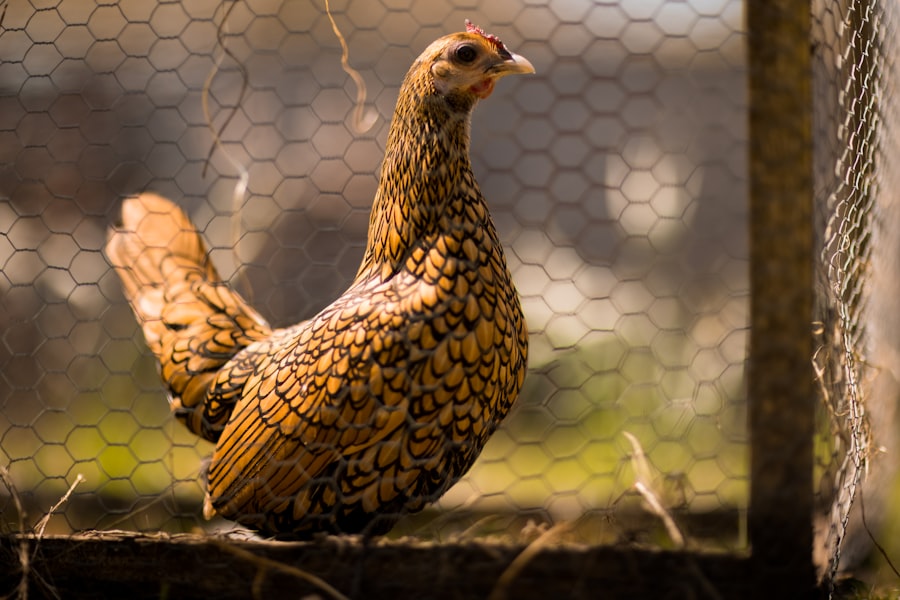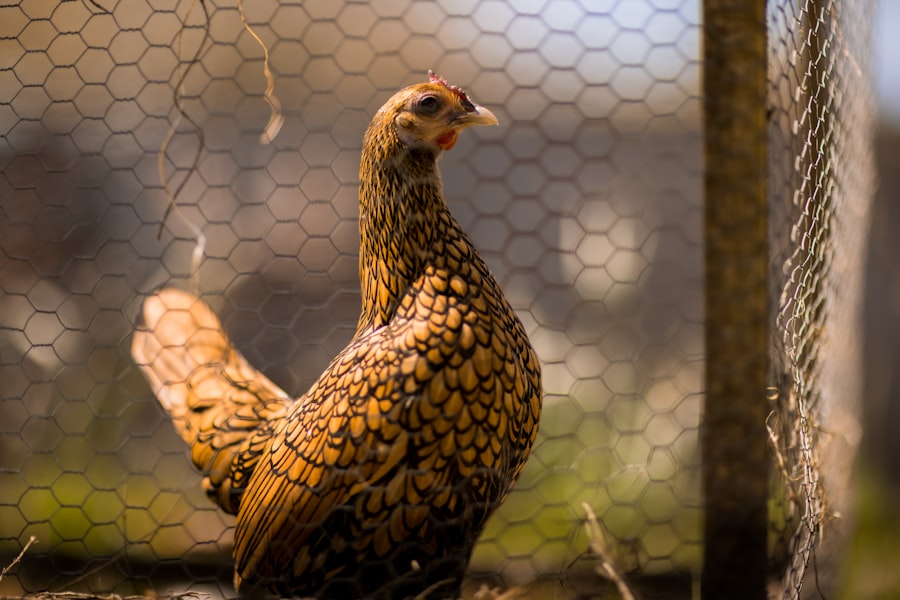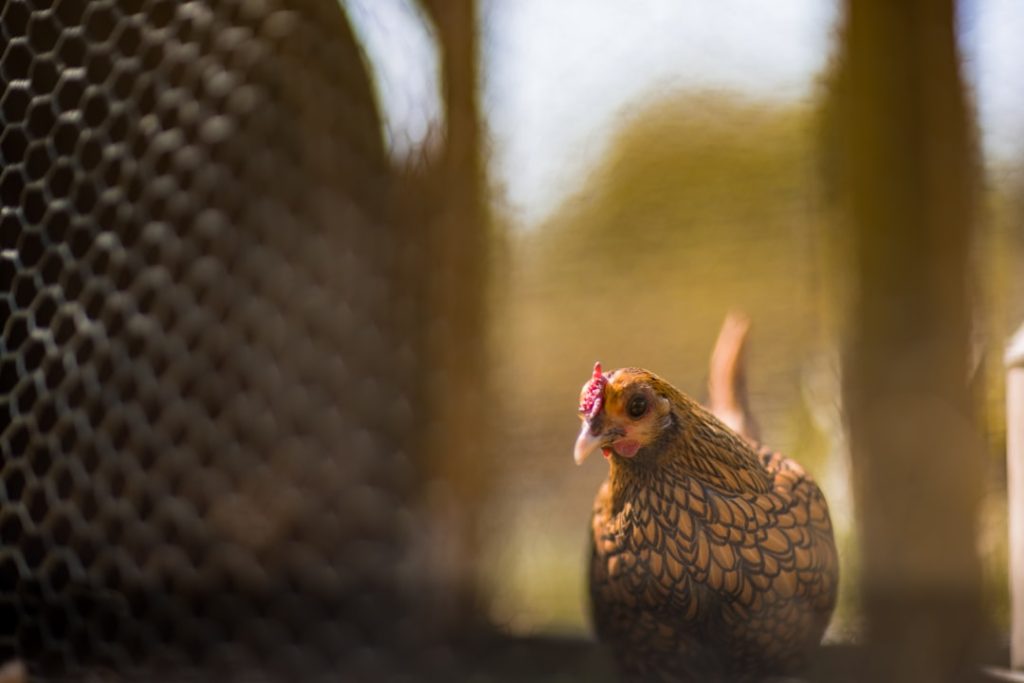The beak is a crucial anatomical feature for chickens, serving multiple functions including feeding, drinking, grooming, and self-defense. A properly maintained beak is essential for a chicken’s health and well-being. It enables efficient food consumption, manipulation of small objects, and feather maintenance.
A sharp beak also aids in protection against predators and helps establish social hierarchy within the flock. Chickens with poorly maintained beaks may experience difficulties in eating and drinking, potentially leading to nutritional deficiencies and dehydration. Inadequate beak condition can also impair grooming abilities, resulting in poor feather quality and increased vulnerability to parasites and infections.
Overgrown or misshapen beaks may contribute to behavioral issues such as aggression and feather pecking among flock members. Chicken beaks are composed of keratin, a protein also found in human fingernails, and continue to grow throughout the bird’s life. In natural environments, chickens maintain their beaks through various activities like ground pecking, foraging, and interaction with abrasive surfaces.
However, in domestic settings, these natural maintenance opportunities may be limited, potentially leading to beak overgrowth or deformities. To ensure proper beak health in domestic chickens, owners should provide appropriate nutrition, encourage natural foraging behaviors, offer suitable enrichment activities and toys, and regularly monitor beak condition. These measures help prevent overgrowth and maintain optimal beak shape and function, contributing to the overall health and well-being of the birds.
Table of Contents
- 1 Providing Proper Nutrition for Beak Health
- 2 Encouraging Natural Foraging and Pecking Behaviors
- 3 Offering Appropriate Toys and Enrichment Activities
- 4 Monitoring and Managing Beak Overgrowth
- 5 Seeking Veterinary Care for Beak Trimming
- 6 Maintaining Healthy Beaks for Happy Chickens
- 7 FAQs
- 7.1 What is the purpose of keeping chickens’ beaks sharp?
- 7.2 How do chickens naturally keep their beaks sharp?
- 7.3 What can be done to help chickens keep their beaks sharp in a domestic setting?
- 7.4 Are there any specific tools or methods for keeping chickens’ beaks sharp?
- 7.5 What are the potential issues if a chicken’s beak becomes overgrown or dull?
Key Takeaways
- Sharp chicken beaks are important for natural behaviors like foraging and self-defense
- Proper nutrition, including a balanced diet and access to grit, is essential for maintaining beak health
- Encouraging natural foraging and pecking behaviors can help keep chicken beaks in good condition
- Offering appropriate toys and enrichment activities can prevent boredom and reduce the risk of beak overgrowth
- Regular monitoring and managing of beak overgrowth is crucial for maintaining healthy beaks for happy chickens
Providing Proper Nutrition for Beak Health
The Importance of Protein
Protein is particularly important for beak health as it is a key component of keratin, the protein that makes up the beak. Without an adequate protein intake, chickens may experience slow or abnormal beak growth, leading to overgrown or misshapen beaks.
Vitamins and Minerals for Beak Health
Vitamins and minerals such as vitamin A, calcium, and phosphorus are essential for overall beak health. Vitamin A deficiency, for example, can lead to dry and brittle beaks, making them more prone to cracking and overgrowth. Calcium and phosphorus are important for maintaining strong and healthy beaks, as well as preventing conditions such as soft beak or scissor beak.
Additional Factors for Beak Health
In addition to providing a well-balanced diet, it is important to ensure that chickens have access to fresh water at all times. Dehydration can lead to dry and brittle beaks, making them more susceptible to cracking and overgrowth. Furthermore, offering supplemental sources of grit or coarse materials can help chickens naturally wear down their beaks through pecking and grinding. Grit provides the necessary abrasiveness to help maintain the proper length and shape of the beak. By providing proper nutrition and access to essential resources, chicken owners can support the overall health and maintenance of their chickens’ beaks.
Encouraging Natural Foraging and Pecking Behaviors

Encouraging natural foraging and pecking behaviors is essential for promoting healthy beak maintenance in chickens. In the wild, chickens spend a significant amount of time pecking at the ground, scratching for food, and engaging in various activities that naturally wear down their beaks. However, in a domestic setting, chickens may not have the same opportunities for natural beak maintenance.
Therefore, it is important for chicken owners to create an environment that encourages natural foraging and pecking behaviors. One way to encourage natural foraging and pecking behaviors is by providing access to a spacious outdoor area where chickens can roam freely and engage in natural behaviors. Allowing chickens to explore grassy areas, soil, and natural substrates encourages them to peck at the ground and scratch for food, helping to naturally wear down their beaks.
Additionally, providing enrichment activities such as scattering food or treats in the environment encourages chickens to use their beaks for foraging purposes. This not only promotes healthy beak maintenance but also provides mental stimulation and enrichment for the birds. Furthermore, incorporating natural elements such as logs, branches, or rocks into the chicken’s environment can provide opportunities for natural beak maintenance.
Chickens will naturally peck at these objects, helping to wear down their beaks and maintain proper length and shape. By creating an environment that encourages natural foraging and pecking behaviors, chicken owners can support the overall health and well-being of their birds while promoting healthy beak maintenance.
Offering Appropriate Toys and Enrichment Activities
In addition to natural foraging opportunities, offering appropriate toys and enrichment activities can help promote healthy beak maintenance in chickens. Toys and enrichment activities provide mental stimulation and encourage natural behaviors such as pecking and exploring. By engaging in these activities, chickens can naturally wear down their beaks while also preventing boredom and behavioral issues within the flock.
One popular enrichment activity for chickens is the use of hanging treats or feeders. These devices require chickens to use their beaks to peck at the hanging object in order to access the treats or feed inside. This not only encourages natural pecking behaviors but also provides mental stimulation and entertainment for the birds.
Additionally, providing objects such as hanging mirrors or shiny objects can pique the curiosity of chickens, encouraging them to use their beaks to investigate and interact with these items. Another effective enrichment activity for promoting healthy beak maintenance is the use of puzzle feeders or foraging toys. These devices require chickens to use their beaks to manipulate or extract food from the toy, providing mental stimulation and encouraging natural foraging behaviors.
By engaging in these activities, chickens can naturally wear down their beaks while also preventing boredom and behavioral issues within the flock. Furthermore, offering perches or roosts of varying heights can encourage chickens to jump and flap their wings, which can help naturally wear down their beaks while also providing exercise and promoting overall physical health. By providing appropriate toys and enrichment activities, chicken owners can support healthy beak maintenance while also promoting mental stimulation and well-being for their birds.
Monitoring and Managing Beak Overgrowth
Despite best efforts to promote natural beak maintenance through proper nutrition, environmental enrichment, and access to natural substrates, some chickens may still experience overgrown or misshapen beaks. It is important for chicken owners to regularly monitor their birds’ beaks for signs of overgrowth or abnormalities. Common signs of beak overgrowth include uneven or misaligned beak tips, difficulty eating or drinking, excessive drooling or food spillage, and changes in behavior such as decreased activity or increased aggression within the flock.
If signs of beak overgrowth are observed, it is important to take proactive measures to manage the issue. One method of managing beak overgrowth is through regular trimming or filing of the beak. This procedure should only be performed by experienced individuals or veterinary professionals to avoid causing injury or discomfort to the bird.
Beak trimming should only be done when necessary and should not be a routine practice unless there are specific health or welfare concerns. Another method of managing beak overgrowth is through dietary adjustments or supplementation. In some cases, nutritional imbalances or deficiencies may contribute to abnormal beak growth.
By adjusting the chicken’s diet or providing supplemental sources of essential nutrients such as protein or vitamins, it may be possible to support healthy beak growth and maintenance. Additionally, providing access to abrasive surfaces such as rough perches or natural substrates can help naturally wear down overgrown beaks over time. By monitoring and managing beak overgrowth through proactive measures such as trimming, dietary adjustments, or environmental modifications, chicken owners can support the overall health and well-being of their birds while promoting healthy beak maintenance.
Seeking Veterinary Care for Beak Trimming

Diagnosis and Treatment Options
Veterinary professionals can perform thorough examinations of the bird’s beak, identify underlying causes of overgrowth or abnormalities, and recommend appropriate treatment options. They can also provide guidance on dietary adjustments or supplementation to address nutritional imbalances that may contribute to abnormal beak growth.
Professional Trimming or Filing
One common treatment option for managing severe cases of beak overgrowth is professional trimming or filing performed by a veterinary professional. This procedure should only be done by experienced individuals with proper training in avian care to ensure the safety and well-being of the bird.
Environmental Modifications and Enrichment Activities
Furthermore, veterinary professionals can offer valuable advice on environmental modifications or enrichment activities that can support healthy beak maintenance in chickens. By seeking veterinary care for professional assessment and treatment of beak health issues, chicken owners can ensure that their birds receive the best possible care while promoting overall health and well-being.
Maintaining Healthy Beaks for Happy Chickens
In conclusion, maintaining healthy beaks is crucial for promoting the overall health and well-being of chickens. A sharp and well-maintained beak is essential for efficient eating, drinking, grooming, and defense within the flock. Proper nutrition plays a key role in supporting healthy beak growth and maintenance by providing essential nutrients such as protein, vitamins, and minerals.
Encouraging natural foraging and pecking behaviors through environmental enrichment and access to natural substrates promotes healthy beak maintenance while also providing mental stimulation for the birds. Offering appropriate toys and enrichment activities can further support healthy beak maintenance by encouraging natural behaviors such as pecking and exploring while preventing boredom within the flock. Monitoring and managing beak overgrowth through proactive measures such as trimming or dietary adjustments helps address issues related to abnormal beak growth.
Seeking veterinary care for professional assessment and treatment of severe cases of beak overgrowth ensures that chickens receive the best possible care while promoting overall health and well-being. By understanding the importance of sharp chicken beaks and taking proactive measures to support healthy beak maintenance through proper nutrition, environmental enrichment, monitoring, management of overgrowth, and seeking veterinary care when necessary, chicken owners can ensure that their birds lead happy and healthy lives. Maintaining healthy beaks is essential for promoting overall welfare within the flock while supporting natural behaviors and physical health in chickens.
If you’re interested in learning more about keeping chickens, you may also want to check out this article on how to build a chicken coop in Chester, SC. It provides valuable information on creating a safe and comfortable environment for your chickens to thrive.
FAQs
What is the purpose of keeping chickens’ beaks sharp?
Keeping chickens’ beaks sharp is important for their ability to forage, peck at food, and defend themselves. A sharp beak allows chickens to efficiently gather food and maintain their overall health.
How do chickens naturally keep their beaks sharp?
Chickens naturally keep their beaks sharp through pecking at hard surfaces, such as rocks, branches, and the ground. This helps to wear down the beak and keep it at an optimal length.
What can be done to help chickens keep their beaks sharp in a domestic setting?
In a domestic setting, providing chickens with access to natural materials like gravel, dirt, and rough surfaces can help them naturally maintain sharp beaks. Additionally, offering a variety of foods that require pecking and foraging can also contribute to beak maintenance.
Are there any specific tools or methods for keeping chickens’ beaks sharp?
While natural materials and foraging opportunities are the best ways to help chickens keep their beaks sharp, some poultry keepers may choose to provide mineral blocks or commercial beak conditioning devices to assist in beak maintenance. It’s important to consult with a veterinarian or poultry expert before using any specific tools or methods.
What are the potential issues if a chicken’s beak becomes overgrown or dull?
If a chicken’s beak becomes overgrown or dull, it can lead to difficulties in eating, drinking, and grooming. This can result in poor health, decreased egg production, and an increased risk of injury or infection. Regular monitoring of beak length and health is important for overall chicken welfare.
Meet Walter, the feathered-friend fanatic of Florida! Nestled in the sunshine state, Walter struts through life with his feathered companions, clucking his way to happiness. With a coop that’s fancier than a five-star hotel, he’s the Don Juan of the chicken world. When he’s not teaching his hens to do the cha-cha, you’ll find him in a heated debate with his prized rooster, Sir Clucks-a-Lot. Walter’s poultry passion is no yolk; he’s the sunny-side-up guy you never knew you needed in your flock of friends!







